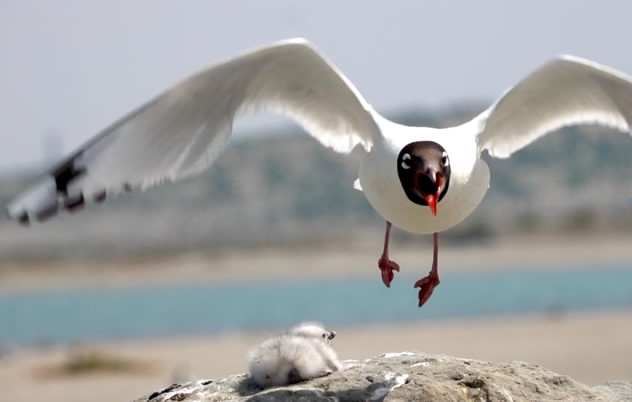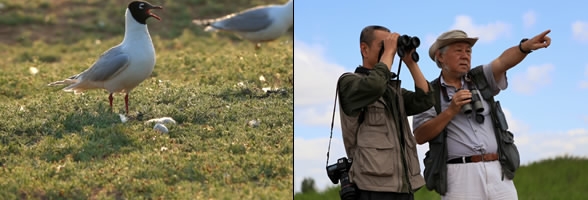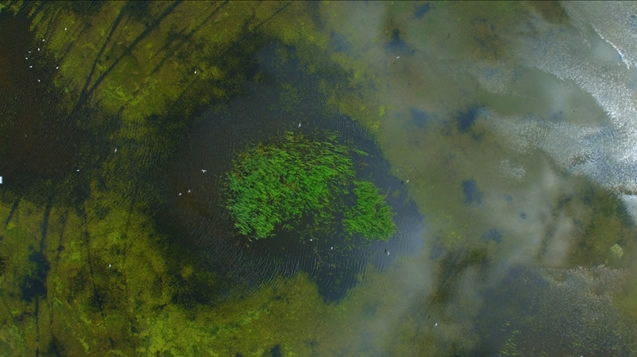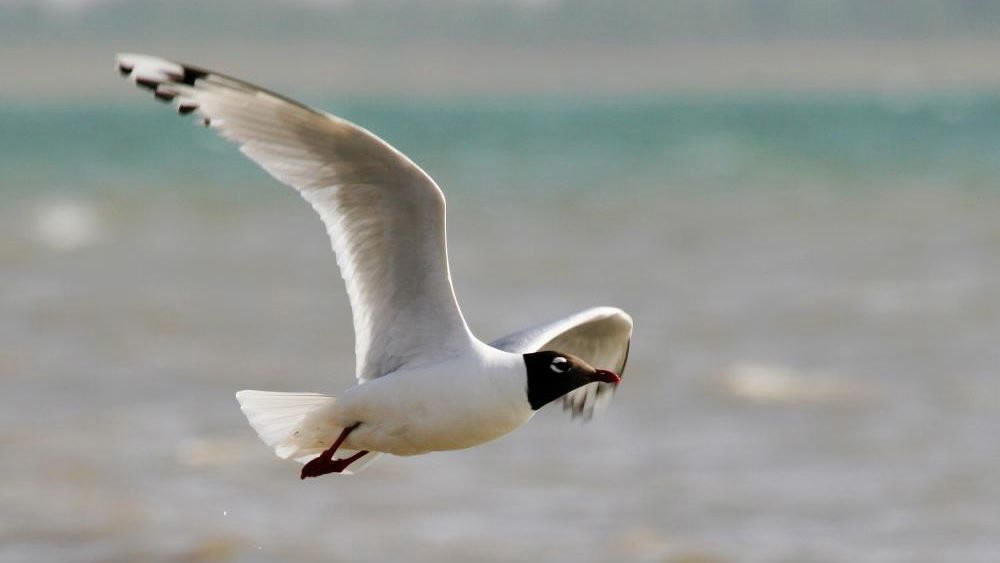The world’s only nature reserve for relict gulls has lost its ecological function as a habitat for the endangered species. Human disturbances – including dams, irrigation and eco-tourism – caused the devastation.

The Relict Gull, an endangered migratory species, is a medium-sized gull that breeds in the Ordos in China. It only nests on sandy islands in the middle of lakes. It's estimated there are only 16,000 such birds worldwide, and approximately 60 percent of them inhabit the nearby Ordos Plateau in northern China. /CGTN Photo
The Relict Gull, an endangered migratory species, is a medium-sized gull that breeds in the Ordos in China. It only nests on sandy islands in the middle of lakes. It's estimated there are only 16,000 such birds worldwide, and approximately 60 percent of them inhabit the nearby Ordos Plateau in northern China. /CGTN Photo
Ordos Relict Gull Reserve
Established as a sanctuary for the relict gulls in 1998, the Ordos Relict Gull Reserve was upgraded to a national reserve in 2001.
Situated near the city of Ordos in Inner Mongolia, it is known as the Taolimiao-Alashan Nur (T-A Nur) lake area and is one of 49 internationally recognized wetland reserves in China.
The International Union for the Conservation of Nature Red List of Threatened Species classified the rare birds as “vulnerable” in 2000.

The Order Relict Gull Reserve is located in the Taolimiao-Alashan Nur lake area at the heart of the Ordos Plateau in the upper reaches of the Yellow River. Now it’s a waste land with no birds nesting. /CGTN photo
The Order Relict Gull Reserve is located in the Taolimiao-Alashan Nur lake area at the heart of the Ordos Plateau in the upper reaches of the Yellow River. Now it’s a waste land with no birds nesting. /CGTN photo
In November 2016, the Ministry of Environmental Protection released an inspection report that criticized devastation of the reserve and issued orders for its restoration.
Zoology Professor He Fenqi from Chinese Academy of Sciences was the first scientist who found the birds in the 1980s. He said habitats are always changing, but unfortunately, not nature but human disturbances are bringing these changes.
“The people are merely part of nature’s system, so we have to do something properly. Recovery needs time. It’s not as simple as just bringing water to the area,” he said.

Research Fellow He Fenqi and Xiao Hong watch the birds migration. /CGTN Photo
Research Fellow He Fenqi and Xiao Hong watch the birds migration. /CGTN Photo
Saving a Rare Bird
China’s fast development has a price. Human activity has already destroyed many wildlife habitats. Over the decades, a large number of wetlands have disappeared. Many experts believe the results could have a devastating impact if preserving the habitat is not made a priority.
It is not about protecting a few bird species, but to protect the mother nature.

CGTN crew on location with He Fenqi and Xiao Hong at Hongjian Nur. /CGTN Photo
CGTN crew on location with He Fenqi and Xiao Hong at Hongjian Nur. /CGTN Photo
The internationally recognized wetland was once Relic Gulls' paradise. But the damage to the ecosystem led to a sharp decrease in nesting. Fortunately, the birds found a new home, more than one hundred kilometers southeast, at the lake called Hongjian Nur in Shaanxi Province. Their fate, however, cannot be protected as the story is still developing.
He Fenqi said the drastic reduction of nature reserves forces the birds to abandon their original habitat.
With eco-tourism booming in China, such reserves are always in danger, he said.
He Fenqi still finds it hard to accept the fate of T-A Nur. Looking at the wasteland, he said, you would never have an idea that it was once home to one of the world's rarest birds.

Bird-eye’s view on Hongjian Nur lake in Shaanxi Province. /CGTN photo
Bird-eye’s view on Hongjian Nur lake in Shaanxi Province. /CGTN photo
To watch the full story of "Saving the Relic Gull”, watch our special series The Big Picture starting on September 21st.







